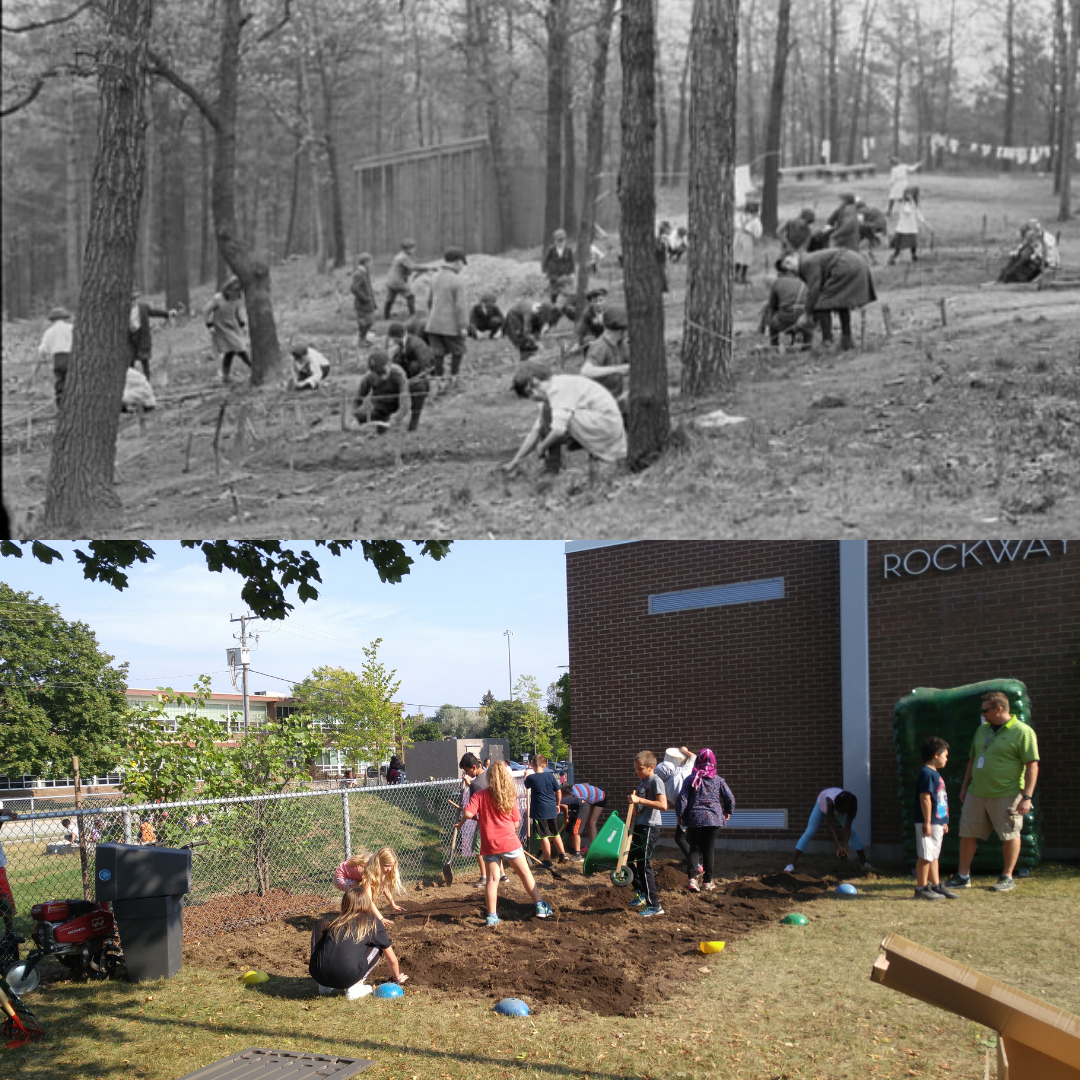School Food Gardens Are Taking Hold ... Again!

Rayna Almas and Rimal Raul
But are school food gardens really a new idea?
Not at all.
You see, school gardens were all the rage in the 1890’s and early 20th century in North America. Educational reformers promoted the experiential learning opportunities gardening introduced, led by the progressive educator John Dewey. He worked to make the boundaries between classroom learning and the natural environment more permeable, urging more educators to take their students outdoors. This allowed students to strengthen their connection with nature, learn to be responsible community members, and respect one another’s properties.
School gardens were certainly an important part of primary education back then.
So, what happened?
When school gardens were gaining traction in North America, there was an increased push to preserve the rural way of life. Some believed that instilling agricultural knowledge and skills from a young age would drive those students to pursue the farming life later on. It became clear following WWl, however, that the country was moving more quickly towards urbanization, and so thoughts of preserving “the old ways” were largely abandoned.
Additionally, there is evidence to suggest that teachers and parents were eager to return to more standard ways of teaching following the war, at least in the United States (but likely Canada, too). Funding and efforts were redirected to other causes. Some gardens remained, largely due to efforts of dedicated educators, but gone were the days of heavy endorsement.
The return of school gardens
Now that’s not the end of the story, is it? As we all know, school gardens are on the upward trend once again.
Many would argue that they’re needed now more than ever. Today’s learning outcomes of school food gardens differ from the past. Now they are utilized to teach about environmental stewardship, food literacy, and sustainable food systems while fostering socio-emotional development. Climate change, biodiversity loss, and human overconsumption are three primary culprits fueling the death of our planet. We need strong future leaders to stand up and fight for the environment in order to have a chance at recovery.
“The sooner you teach a child the joys of the garden, the more likely you'll have an adult who respects the environment." (Marjorie Harris, "Students Watch how their Garden Grows," The Globe and Mail, May 16, 1992)
Since the late 1990’s, dozens of programs throughout Canada have emerged. One such program is our very own Waterloo Region School Food Gardens, which has funded, coordinated, and helped build and maintain 27 school food gardens throughout Waterloo Region over the last four years.
What if every school had a garden? Better yet, what if every school had the resources, funding, school board and government support, and community engagement to maintain a food garden?
Can you imagine?
Photo (top): [Children] gardening in plots at the Forest School in High Park, [Toronto, Ont.], 7 June, 1917 Source: Library and Archives Canada/John Boyd fonds/a070936
Photo (bottom): Children gardening at Rockway Public School in Kitchener ON, September 2017. Source: Waterloo Region School Food Gardens
Not yet a member?
An annual membership to Seeds of Diversity gives you access to our seed exchange, seed grow-out programs, and our online news.

We depend on donations to do our work.

Thank you for your support!
